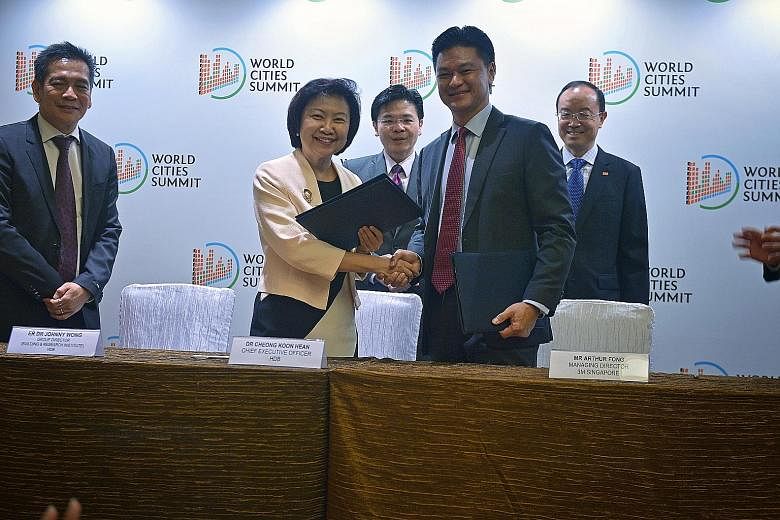One potential problem of living in a crowded city is having noisy neighbours, and now the Housing Board is taking a fresh approach towards addressing this issue.
The HDB will work with 3M Singapore to study suitable materials for walls, floors and windows that can absorb, reflect or reduce the transmission of noise within flats.
"My neighbours can be a bit noisy sometimes, knocking tables and playing computer games. I think this will be a good thing," said Madam Lai Mooi Lan, a 60-year-old retiree.
The agreement was one of three with industry players, signed at the World Cities Summit yesterday, in an effort to tap the knowledge and experience of the private sector to improve the planning and design of HDB estates.
Dr Cheong Koon Hean, chief executive officer of HDB, said: "This research will help us to better understand noise in the urban environment, such as those generated from human activities and traffic, and to explore viable mitigating solutions."
Madam Jenny Yeo, 57, felt that the noise reduction would be most beneficial at night.
"Sometimes at night, I can hear cars honking from below. Imagine being fast asleep and getting woken up by that," said the cleaner.
In line with Singapore's move towards becoming a smart nation, the HDB also signed a $10 million contract with the NCS consortium, to develop a new Smart Urban Habitat Master Plan, with support from the Economic Development Board.
It will identify challenges on the ground and highlight the areas for research, to create sustainable solutions.
In March last year, Punggol was identified as the first town where this masterplan will be implemented. An assessment will be completed by the end of this year and residents are optimistic.
"Punggol is perfect for it (the masterplan)," said resident Benjamin Tan, 32, who organises youth development programmes. "The population is generally younger, and more receptive to fresh ideas."
The HDB-NCS partnership would also see a new smart hub created to collect information such as data from sensors around estates at a central site.
This makes it possible to monitor estate operations such as lighting and waste collection, and optimise maintenance cycles and reduce operational costs.
For instance, sensors fitted on lights in common areas will provide data on human traffic. For areas with little or no traffic, lights can be reduced to a third, leading to energy savings of as much as 40 per cent.


